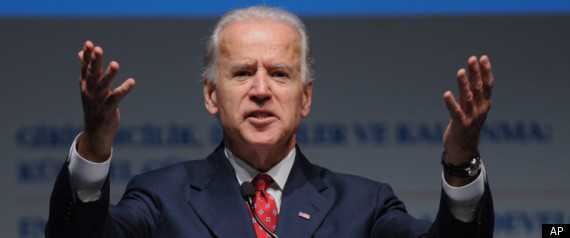In Turkey to Strengthen Ties, Biden Refuses to Ignore a Host’s Economic Boast
By MARK LANDLER
Published: December 3, 2011

ISTANBUL — Vice President Joseph R. Biden Jr. came to this ancient city that spans Europe and Asia to talk about building bridges between the United States and the Islamic world. But on Saturday, he felt compelled to brush back a challenge from his Turkish hosts.
Mr. Biden was a keynote speaker at an annual gathering of students and young entrepreneurs that President Obama inaugurated last year as a way of encouraging American-style business in Muslim countries. This entrepreneurial spirit, Mr. Biden said, had helped to fuel the political uprisings across the Middle East and North Africa.
But while the vice president was here to reach out, and did so in a later meeting with Prime Minister Recep Tayyip Erdogan, he got a taste of how the economic travails in the United States and Europe have bolstered the brashness of emerging powers like Turkey, which has so far avoided the troubles in Europe and the United States.
Ali Babacan, a deputy prime minister of Turkey who oversees the economy, delivered a confident address about Turkey’s future and its status as a model Muslim democracy. He attributed Europe’s spiraling debt problems to its lack of political leadership.
“If they had a strong government like we have in Turkey,” he said, “they would be able to solve their problems.”
Mr. Babacan said that with 7.5 percent economic growth projected this year, Turkey, not the larger but troubled economies of the United States and Europe, was poised to win in the 21st century. “The fast fish, not the big fish, eats the small fish,” he said.
Mr. Biden then got up to speak, and after declaring that he did not plan to talk about the American economy, he did just that. First he took issue with Mr. Babacan’s competitive tone, saying, “I am going to suggest that we, all nations, are in this together.” Then, even as he was acknowledging economic difficulties, he pointedly reminded the audience that in a sea of young sharks, the United States was still the whale.
“The fact that our economy is three-and-a-half times as large as the next-largest economy, and larger than the next four combined, does not make us immune from what’s happening around the world,” Mr. Biden said.
The vice president’s aides said he had added those words to his 31-minute speech after listening to Mr. Babacan. There was no evidence that either man was ruffled by the episode. They posed next to each other with broad smiles after their speeches.
The rest of Mr. Biden’s day appeared more harmonious, including his two-hour session with Mr. Erdogan, who was recuperating from a medical procedure at his private residence. Mr. Biden and his aides put on slippers and were introduced by Mr. Erdogan to his son, daughter and son-in-law, according to a senior administration official.
Turkey and the United States, NATO allies since 1952, have had a rich but complicated relationship during the Obama administration. The president has assiduously cultivated Mr. Erdogan, viewing him as part of a new generation of Muslim democratic leaders.
But the two clashed over Turkey’s vote in the United Nations Security Council against harsher sanctions against Iran for its nuclear program. Turkey and Brazil tried to break the impasse with Iran — a diplomatic gambit that the United States repudiated.
Mr. Biden appeared not to have pushed Mr. Erdogan on Iran. While the vice president made the case for continued pressure, the senior official said, the two did not discuss specific sanctions. Mr. Biden urged Mr. Erdogan to repair Turkey’s badly frayed relations with Israel, and the leaders discussed the upheaval in Syria, where Mr. Erdogan has imposed sanctions and backed up the American demand that President Bashar al-Assad step down.
Despite his striking pushback, Mr. Biden made clear later in his speech that he admired Turkey’s ambition. He noted that Turkey, whose economy is now the 17th largest in the world, aspired to enter the top 10 by 2023, the 100th anniversary of the founding of the Turkish republic.
“With what I know about Turkey’s people and its leaders over the past 35 years, and what I’ve seen in the last decade, and what I’ve seen this week,” he said, “I’d say that’s a pretty good bet.”
A version of this article appeared in print on December 4, 2011, on page A14 of the New York edition with the headline: In Turkey to Strengthen Ties, Biden Refuses to Ignore a Host’s Economic Boast.
via Biden Parries Turkish Official’s Economic Boast – NYTimes.com.